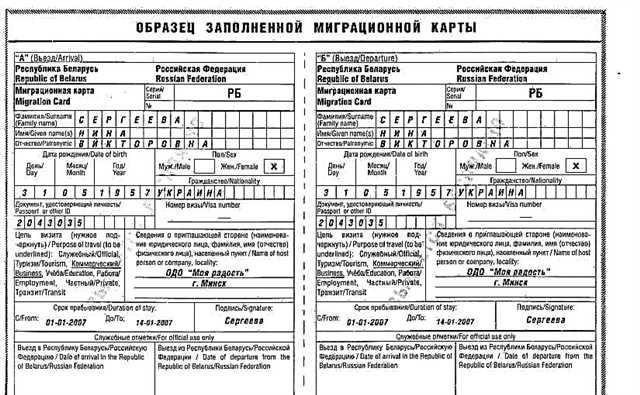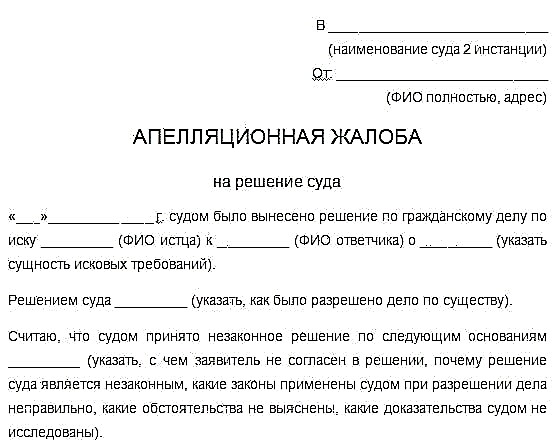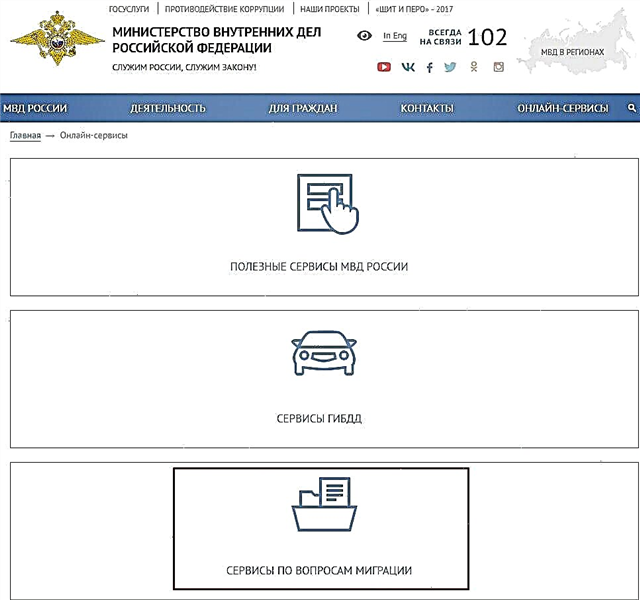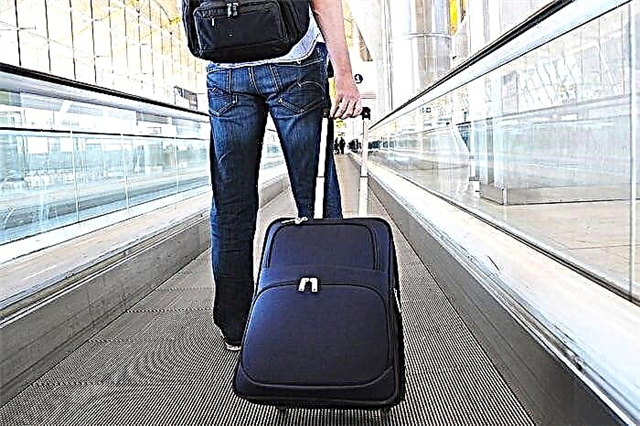The conflict with Ukraine, despite the growing statute of limitations, does not even think to fade away. In 2019, another round of escalation led to news of the possible deportation from Russia of all Ukrainians temporarily living in the country. The problem directly affects three percent of the population of the Russian Federation: two million citizens of the country migrated from Ukraine earlier and have passports, another two have received a residence permit or work visa.
Situation for 2019
The panic in the fall-winter of 2018 was caused by the abolition of the simplified procedure for staying in Russia. Any citizen of Ukraine could enter for a period of six months without any documents at all, except for a completed migration card. This was done for humanitarian purposes - creating an opportunity for Ukrainians to avoid participating in the ATO.

The problem is that with such an entry into the country, the migrant does not receive legal status. All this time, the deadlines were constantly shifting, and only in the fall of 2018 the FMS issued an appeal in which it spoke of the need to determine the legal status from November 1 to 30. At the same time, information about the need for registration was conveyed to the refugees back in mid-2015.
Important! According to Russian law, a person without legal status cannot cross the country's border to either side.
The spread of rumors about an imminent deportation is part of the information war waged by the Ukrainian side. The specter of rumors is wide enough: from huge fines for violations to the deportation of all residents who received a passport in the past five years. Of course, the FMS of Russia is not planning any mass events of this kind.
Why can Ukrainian citizens be deported from Russia?
For Ukrainian citizens, the same reasons for deportation apply as for other foreigners:
- Illegal entry, for example, with forged documents or with knowingly giving false information. This also includes illegal border crossing in any way;
- Violation of the rules of stay - non-compliance with the visa regime or several offenses within three years;
- Loss of grounds for staying in the country. So, for a student visa, this will be the completion of training for any of the reasons, for a work visa - termination of an employment contract without concluding a new one.

Not subject to deportation:
- People in refugee status or applying for this status;
- Employees of diplomatic institutions.
As of December 2018, all Ukrainians who entered Russia under a simplified scheme have lost their grounds for being present in the country. In order not to fall under sanctions, it is necessary to resolve the issue of paperwork as soon as possible.
You May Also Like
How is the deportation from Russia to Ukraine
Forced sending of migrants to their homeland occurs in the following order:
- After the end of the legal stay in the country, the guest is given three calendar days to leave it;
- After the cancellation of documents, the period is increased to 15 days;
- If after that the migrant has not left the territory of the country, his case is referred to the court. Deportation is carried out based on a court decision;
- Before sending, in order to avoid excesses, the foreigner waits in a special isolation ward.
The cost of deportation will be borne by (in order of priority):
- Foreigner;
- Host person or company;
- Official representation of his country;
- Host state.
The decision can be appealed no later than ten days from the date of receipt. A petition for revision of the decision can be submitted both to the higher authority of the FMS and to the court.

After filing an appeal to the court, the migrant will be “on the suitcases” for a long time. There is also good news - at the time of the appeal, a Ukrainian will not be able to be deported from the country.
Consequences of deportation from Russia to Ukraine
After being expelled from the country through the court, the migrant's entry back will be closed for a period of three to five years - he falls into the so-called "FMS black list".
Before traveling to Russia, it is advisable, just in case, to check if there are any entry sanctions for any reason. This can be done on the guvm.mvd.rf website.
Site menu appearance

You will need to provide personal and passport data, but this will save you from a sudden return home at the state border.
You May Also Like
A three-year period of entry restrictions awaits for violations of the period of stay for more than four months, as well as for bringing to administrative responsibility more than two times (all cases are counted, even fines for speeding).
A five-year restriction awaits for persistent or repeated violations of visa rules, serious offenses or labor without permission. A ten-year ban on entry to Russia awaits in the event of a secondary deportation.
Video clip about the causes and consequences of deportation:
How to avoid deportation from Russia
Most often, the question is asked in two cases:
- Exceeding the period of stay for more than a month;
- Expired card.
In such cases, deportation may follow a combination of violations.
In order to avoid deportation due to the submission of false information and violation of the visa regime, the true purpose of the visit must be indicated when processing the documents. When crossing the border for the purpose of a long-term stay or obtaining a residence permit, you should immediately inform the officer of the migration service.
In order to avoid further problems, upon arrival, you need to do the following:
- In the first week, register for migration at the FMS department, preferably immediately after the migrant has started renting a house, moved in with relatives or at a hotel;
- Then, within a month after registration, pass a medical examination and exams;
- Next - get a working patent if you plan to work.
The final decision on the request to the court for the deportation of the foreigner is an emergency measure. It is applied only in cases where a foreign citizen refuses to leave Russia on his own.

What if the deportation decision has already been made? The migrant can file a response claim to a higher court, which will take into account all the circumstances of the case:
- The presence of relatives - citizens of Russia or people who are holders of a residence permit;
- The composition of the family, the presence of disabled dependent members;
- General characteristics from places of work / study;
- Real estate ownership or long-term rental with characteristics from the homeowner;
- Permanent source of legal income;
- Statistics of offenses for the entire period of residence in the country.
For a retaliatory claim, you should definitely contact a lawyer: such cases are quite complicated. With the correct documents submitted, deportation is postponed until a court decision. With minor formal irregularities and a good characterization of the migrant, the appeal is often successful.
Important! Court hearings in which a migrant admits guilt in advance and asks for leniency are seriously different compared to cases where a foreigner insists on a mistake by the migration service. In the second case, there is no need to talk about leniency on the part of the court, so the strategy must be chosen long before the trial.
Despite the fact that the events in 2021 turned out to be planned, and no one is going to deport Ukrainians, the residents of this country should be attentive to the visa rules. Due to the conflict between Russia and Ukraine, any errors in the implementation of the visa regime are considered extremely closely by the migration service.











